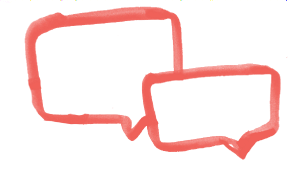Being a Part of Change
Jahla Lawrence is a passionate young leader striving to end sexual violence.
Jahla has been involved in the sexual violence sector for a while now, having previously been the president of the Victoria University Thursdays in Black club. She is now the national coordinator for Thursdays in Black, a campaign aimed at preventing and responding to sexual violence in student spaces. She is also the coordinator for Tauiwi Caucus with TOAH-NNEST - Te Ohaakii a Hine – National Network of Ending Sexual Violence Together and was one of the organisers of the recent #LetUsLive Rally for a City Free from Sexual Violence in Wellington. We sat down with Jahla to chat about her work and her experiences as a passionate young change maker.
How do you manage being involved in all your roles and wearing so many hats?
Sometimes I don't. Honestly, it's messy, it takes a lot of energy just holding all the different spaces, let alone actually getting anything done. It takes a lot of organization, planning, prep, time commitment, and even sacrifice. Working in a whole variety of sexual violence spaces means that I’m embedded in the field constantly, all my life is in this field, and that is a very intentional decision. I love what I do so much, so I think that's something that really helps. I love seeing the way that all the places that I work in can overlap and interlink with each other. I believe that in social justice engagement it's not about the one person, it's about how your skill set links to other people's skill sets.
How do you approach having difficult conversations with people?
I have two answers to this: one is the fact that you don't have to have those conversations. That is not the role for everyone; a movement takes a lot of different types of people; it takes the people standing in the middle of the march yelling their brains out and it takes those who sit at home and comment on Facebook posts. We all figure out and negotiate our own boundaries and what we'll do what we won't. When it comes to work in the feminist space, I will have conversations with some types of men around some types of subjects. There are some conversations that I won't have too. So don’t feel like you have to. If you can't do it safely and you can't do it in a way that that is protecting yourself and your mana, then you don't have to do it.
The second thing would be if you are somebody who wants to have those conversations, do it compassionately and do it values-based. When we're talking about sexual violence if I start talking about patriarchy and toxic masculinity people are going to turn off.
But if I start with the premise that every person should live in a world free from sexual violence, no one's going to disagree, cause if they disagree, they’re an asshole, and no one wants to be that person.
So, you start from that, a belief that everyone can agree with, and then you slowly move away from there.
What has been your biggest lesson so far?
I can't do everything, despite the fact that I might want to and that's okay. Which is a big thing that I found very difficult. I can see a lot of young people in this area who are very visionary, they can see a better world, they see an environment in which women are able to flourish, but we can see so many different ways to get there, and we want to do them all. We want to participate in the anti-racism movement, we want to go on strike for climate change, we want to look at how to better support workers on minimum wage, we want to advocate for women's rights, and we want to work in queer spaces and that's fantastic – but sometimes just knowing that you are thinking about engaging with all those ideas is enough.
Because if you take all of those perspectives into your issue then you are providing an intersectional perspective within your movement. It's what we call a spectrum of engagement in terms of deciding “this is the thing that that I work really hard at and put a lot of time and energy in, and then this other thing is something where I share a Facebook post or maybe I attend a rally.”
Check out the second half of Jahla’s interview here, where Jahla talks to us about community, self-care, and how to get involved in change making!








